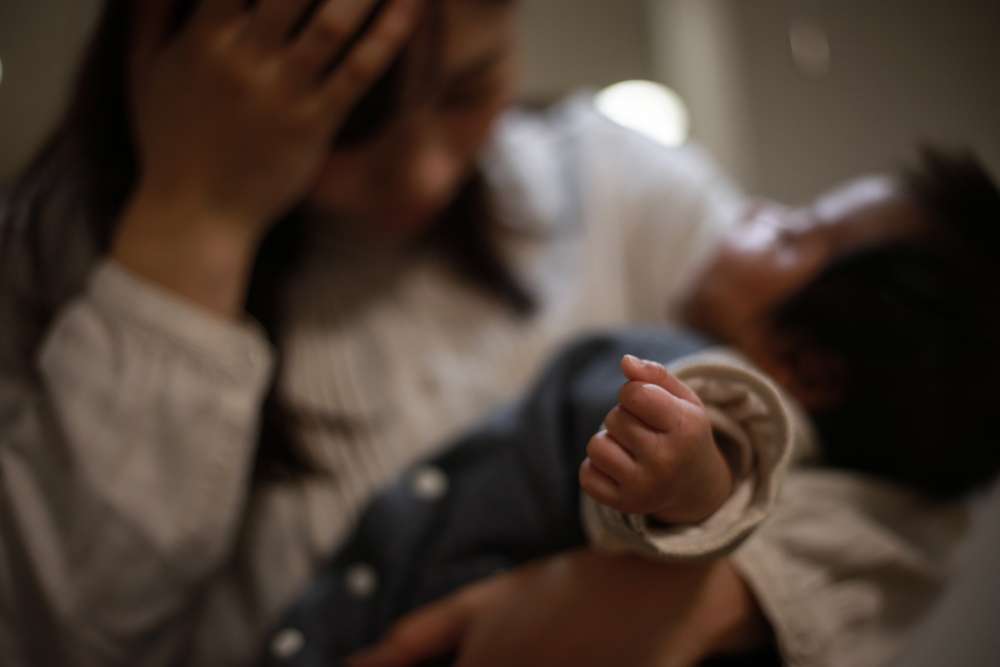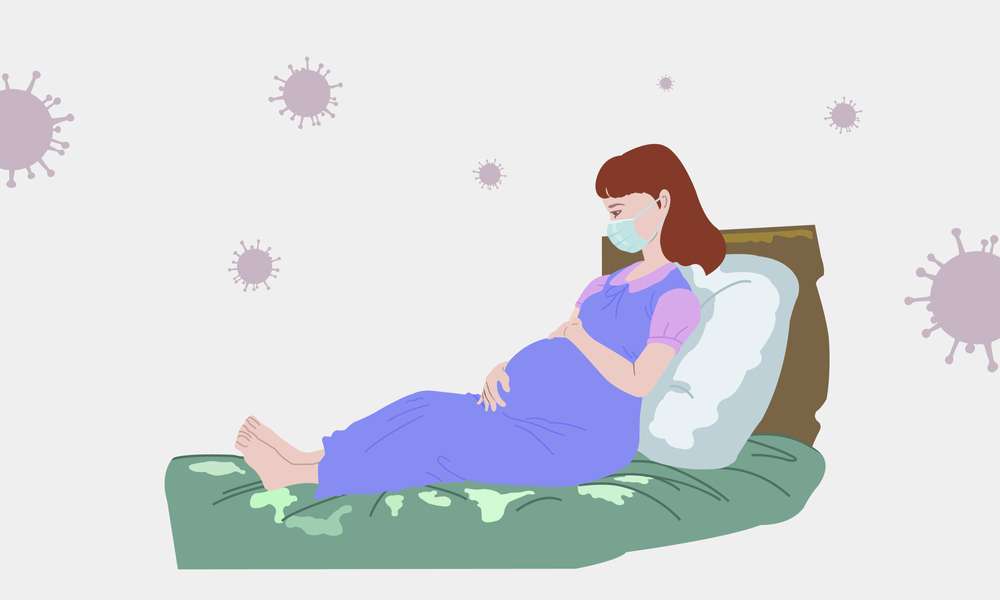postpartum depression
Introduction:
Postpartum depression is a mood illness that many new moms experience after giving birth. To help those who are suffering with it, it is critical to understand its symptoms, causes, and treatment choices. In this essay, we will look at several facets of postpartum depression and offer advice to those in need.
What is Postpartum Depression?
Postpartum depression, also known as postnatal depression, is a type of depression that develops following childbirth. It differs from the “baby blues,” which are transient and usually pass within a few weeks. Postpartum depression, on the other hand, is a more severe and persistent disease that can severely impair a mother’s ability to function and care for her newborn.
When Does Postpartum Depression Start?
Postpartum depression usually appears within the first few weeks after childbirth, but it can appear at any moment within the first year. During this period, it is critical to be aware of the signs and symptoms in order to ensure early intervention and appropriate assistance.
How Common is Postpartum Depression?
Many individuals underestimate the prevalence of postpartum depression. It affects roughly 10-20% of new mothers, making it a common condition. The exact prevalence, however, may vary depending on a variety of factors such as cultural norms, socioeconomic level, and healthcare accessibility.
What Does Postpartum Depression Feel Like?
Postpartum depression manifests differently for each individual, although it frequently entails severe sadness, anxiety, or even emptiness. Women suffering from postpartum depression may struggle to find joy in previously appreciated activities or may feel overwhelmed by their new role as a mother. When these symptoms persist or intensify, it is critical to seek professional help.
Why Does Postpartum Depression Happen?
The specific causes of postpartum depression are unknown, however it is thought to involve a complex interplay of biological, hormonal, and psychological variables. Postpartum depression is exacerbated by the considerable hormonal changes that occur after childbirth, as well as emotional and physical stressors.
How to deal with postpartum depression?
Dealing with postpartum depression is difficult, but there are things people can do to alleviate their symptoms:
- Seek assistance: Do not be afraid to seek help from loved ones, professionals, or support groups.
Self-care should be practiced: Make self-care activities that promote relaxation and emotional well-being a priority. - Create a routine: Developing a defined routine might help you feel more stable and in control.
Set reasonable expectations: Take baby steps and be gentle with yourself as you traverse this difficult moment. - Inform yourself: Learn about postpartum depression to help you understand and cope with it.
Open communication: Share your feelings and concerns with people you trust, especially healthcare providers.
Signs of Postpartum depression:
Recognizing postpartum symptoms is critical for early intervention and adequate support. Some common warning signals to check for are:
- Isolation from family and friends
- Difficulty bonding with the newborn Physical problems such as headaches or stomachaches have increased.
- Ignoring personal hygiene
- Reduced enjoyment or interest in daily activities
- Having difficulty focusing on activities or recalling details
- Excessive worries for the baby’s health or well-being
Pospartum depression symptoms:
Postpartum symptoms might vary from person to person, however they frequently include:
- Feelings of despair and pessimism that persist
- Extreme exhaustion and a lack of energy
- Sleeping difficulties or excessive sleeping
- Loss of interest in previously enjoyed activities
- Irritability as well as mood fluctuations
- Appetite changes, either lack of appetite or overeating
- Difficulties focusing or making decisions
- Guilt or a sense of worthlessness
- Suicidal or self-harming thoughts
What causes pospartum depression?
The specific cause of postpartum is unknown, however it is thought to be influenced by a number of variables, including:
- Hormonal fluctuations: Hormonal fluctuations, particularly a rapid reduction in estrogen and progesterone levels following childbirth, might lead to mood problems.
- Emotional factors: A history of depression, anxiety, or postpartum depression can raise the chances of having it again. Relationship problems or financial challenges may also be emotional pressures.
- Physical changes and fatigue: The physical rigors of pregnancy, childbirth, and adjusting to a newborn can cause weariness, which can contribute to depression.
- A lack of social support or a weak support system can aggravate feelings of loneliness and lead to postpartum depression.
Postpartum Depression Screening:
Postpartum screening is critical for identifying people at risk and providing appropriate care. Standardized questionnaires are frequently used by healthcare providers to assess the existence and severity of symptoms. Routine screenings during postpartum check-ups aid in early intervention and therapy.
How long does pospartum depression last?
The duration of postpartum varies from person to person. While some people may only have symptoms for a few weeks, others may struggle for months or even years if left untreated. Seeking expert assistance can help to reduce the duration and severity of the disease.
How to treat postpartum depression?
Postpartum is often treated with a combination of therapy and support. Individual and group therapy can give a safe place to vent feelings and learn coping mechanisms. Medication may also be provided to ease symptoms and control mood. To identify the optimal treatment approach, it is always advisable to consult with a docotr.
Postpartum depression treatment:
Postpartum is often treated with a combination of therapy, support groups, and medication, if necessary. Seeking the advice of a healthcare expert is critical in determining the best course of action. Among the most prevalent therapeutic options are:
- Therapy: Individuals can benefit from cognitive-behavioral therapy (CBT) or interpersonal therapy (IPT) to explore their emotions, build coping techniques, and improve their general well-being.
- Groups of support: Joining support groups allows mothers to connect with other women who are suffering from or have suffered from postpartum depression, providing a sense of validation and empathy.
- Medication: Medication may be recommended in some circumstances to help alleviate symptoms. Antidepressants, such as selective serotonin reuptake inhibitors (SSRIs), may be prescribed and should be addressed with a doctor.
Postpartum Depression Self-Care:
Self-care is critical in the treatment of postpartum . While it may feel difficult, practicing the following self-care habits might help:
- When feasible, prioritize rest and sleep.
- Seek help from loved ones or participate in support groups.
- Participate in activities that provide you joy and relaxation.
- Maintain a nutritious and well-balanced diet.
- When necessary, delegate duties or seek assistance.
- Discuss your feelings and concerns with healthcare experts freely.
Conclusion:
Postpartum is a difficult condition that many women experience after giving delivery. We can offer support and empathy to those suffering with it if we understand its symptoms, causes, and treatment options. Remember that getting expert assistance is critical to navigating this trip and ensuring the health of both the mother and her newborn.





Pingback: Postpartum Psychosis - Journey Of Mother